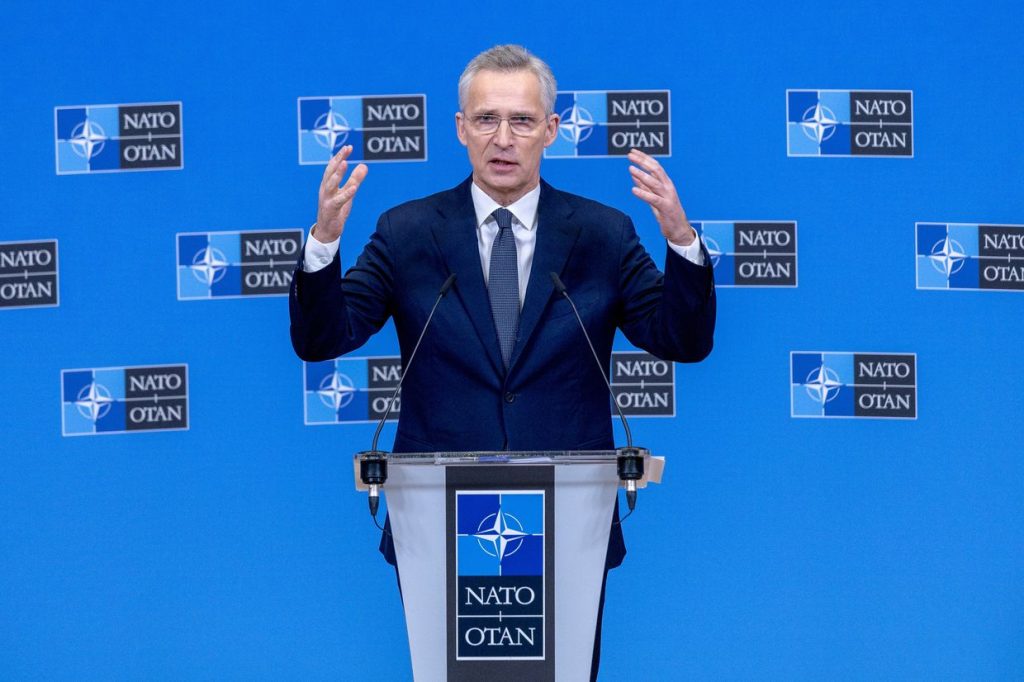NATO Secretary General Jens Stoltenberg proposed the creation of an allied fund worth $100 billion over five years for Ukraine, ahead of the NATO foreign ministers’ meeting in Brussels. This proposal would need to be approved by all 32 alliance members and is likely to be amended at the NATO summit in July. The funds would support Ukraine and potentially involve taking over the operational duties of the U.S.-led Ukraine Contact Defense Group. This move could protect the structure from any political changes that may occur after the U.S. presidential elections in November.
While NATO is united against Russia’s full-scale invasion, levels of support and public statements vary among member states. Geographically closer states such as the Baltic countries have been more vocal in their support of Ukraine. Sweden’s Foreign Minister Tobias Billstrom highlighted the sense of urgency needed to act, and Estonian Prime Minister Kaja Kallas mentioned that a Russian defeat in Ukraine could prevent World War III. This indicates varying perspectives within NATO regarding the threat that Russia poses to European security.
Ukraine signed seven agreements with allied countries in early 2024, lasting for the next decade, to ensure its security while negotiating NATO membership. President Volodymyr Zelensky’s diplomatic advisor stated that Ukraine is negotiating 10 more bilateral deals to further enhance its security and defense capabilities. These agreements aim to strengthen Ukraine’s position and provide support in its fight against Russian aggression. The agreements also signify Ukraine’s commitment to aligning itself with Western allies and integrating into broader security alliances.
The proposed creation of the allied fund for Ukraine represents a potential paradigm shift for NATO, as it signals a willingness to provide substantial financial support to a member country facing external aggression. This move could indicate a deeper commitment to defending member states against threats and may set a precedent for future support mechanisms within the alliance. By taking on operational duties related to weapons deliveries to Ukraine, NATO could streamline assistance efforts and ensure a coordinated response to the conflict in the region. This step may enhance Ukraine’s defense capabilities and resilience against Russian incursions.
The focus on Ukraine’s security and its negotiations for NATO membership reflect the changing dynamics in European security architecture. The support from allied countries and NATO’s potential involvement in bolstering Ukraine’s defense signify a shift towards a more proactive approach to regional security challenges. The alliances formed through these agreements and the proposed fund demonstrate solidarity among NATO members in standing against aggression and supporting countries facing external threats. This coordinated effort could strengthen Ukraine’s position in the region and contribute to the overall stability and security of Europe.


